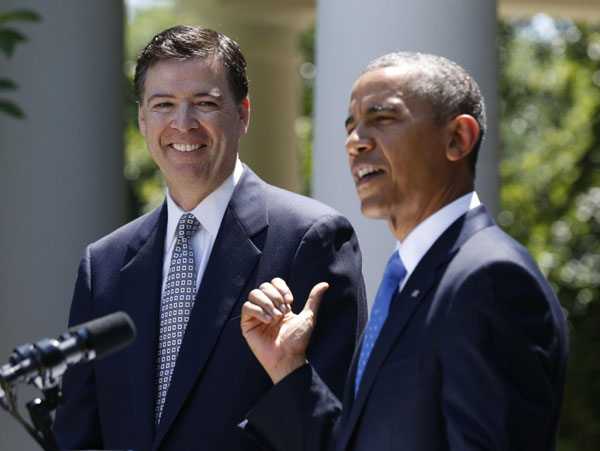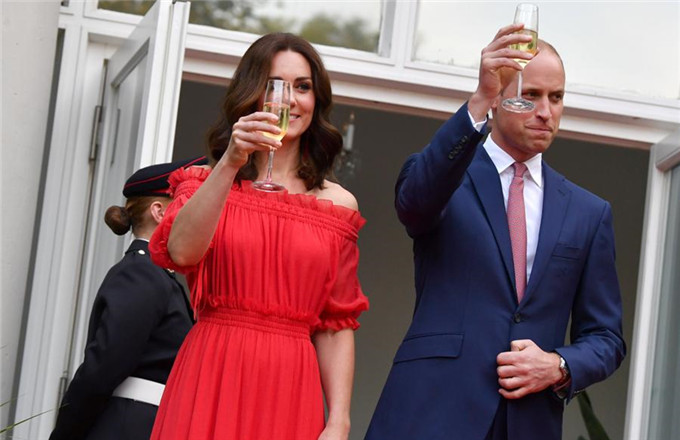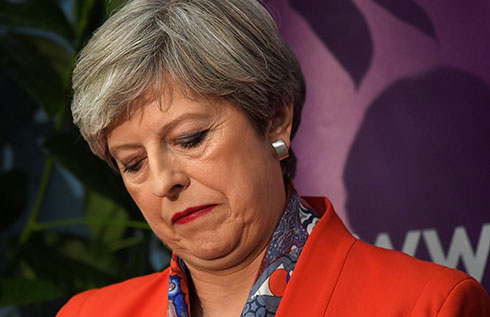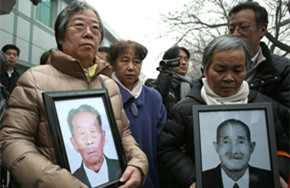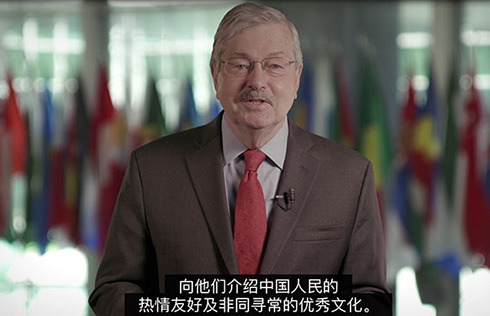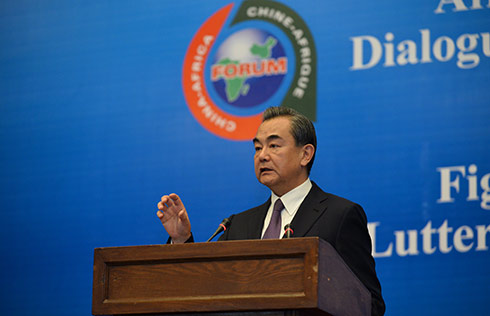Obama nominates new FBI director
WASHINGTON -- US President Barack Obama on Friday nominated former Deputy Attorney General James Comey to replace Robert Mueller as the next FBI director, amid controversies over the US intelligence community's classified surveillance programs.
Speaking at a White House ceremony, Obama said Comey is "exceptionally qualified to handle the full range of challenges faced by today's FBI, from traditional threats like violence and organized crime, to protecting civil rights and children from exploitation, to meeting transnational challenges like terrorism and cyber threats."
Comey, 52, the No 2 official in former President George W. Bush's Justice Department, had been seen as a top choice for the next FBI director.
"To know Jim Comey is also to know his fierce independence and his deep integrity," said Obama, adding that Comey cares about getting the job done rather than politics.
The president said in particular that Comey was once prepared to give up his job rather than "be part of something he felt was fundamentally wrong."
Comey earned praise when he resisted renewing approval for an eavesdropping program in 2004 at the request of former Bush administration officials and threatened to resign along with other law enforcement officials, including Mueller.
If approved by Congress, Comey will replace outgoing Director Mueller and serve a 10-year term.
NEW CHALLENGES FROM TERRORISM
Mueller has been chief of the FBI for almost 12 years, starting just days before the September 11 terror attacks in 2001.
His 10-year-term has been extended by two more years by Congress at Obama's request and scheduled to expire in September.
"Bob, some of you will recall, was sworn in just days before 9/ 11. And Bob not only played a key role in our response to those attacks, he began one of the biggest transformations of the FBI in history to make sure that nothing like that ever happens again," said Obama.
The president said Mueller had "steady hand and strong leadership at the bureau."
Mueller is leaving at a time when the FBI is facing with a number of questions, including whether more could have been done to prevent the Boston bombings.
On April 15, twin bombings killed three people and wounded more than 200 in Boston, in the first successful terrorist attack against civilian targets in US homeland after the 9/11 attacks in 2001.
It was later revealed that the Russian authorities had warned the FBI about one of the suspects' extremist tendencies, but the FBI cleared him after interviewing him.
Testifying before a Senate panel on Wednesday, Mueller said, " As illustrated by the recent attacks in Boston, the terrorist threat against the United States must remain our top priority."
The country is facing "a continuing threat from homegrown violent extremists" while foreign terrorists still seek to strike Americans at home and abroad, he said.
"And just as our national security and criminal threats constantly evolve, so too must we, the FBI, evolve to counter these threats, even during a time of constrained budgets," Mueller said.




